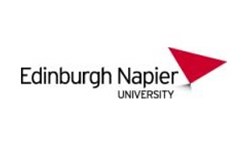Edinburgh Napier University is launching a new project geared towards opening pathways into engineering education for girls and other groups that are underrepresented in the industry.
ENU is launching “Libraries of Inspiration” with support from a £99,700 grant from The Royal Academy of Engineering’s Diversity Impact Programme.
Dr Debbie Meharg, Associate Professor and Head of Applied Informatics at ENU, said that the obstacles keeping girls and other underrepresented groups out of science, technology, engineering and mathematics (STEM) careers are also holding back innovation.
“It is not just about fairness, it’s about unlocking the full potential of these pupils, giving them opportunities and also for the betterment of society, the economy, and the field of engineering.”
The Libraries of Inspiration project will provide 10 subject-specific resource kits for 12- and 13-year-olds.
Students will help design the kits themselves, which will let them explore augmented reality, robotics, AI, information systems and other cutting-edge technologies while working collaboratively.
Project leaders said that the kits will incorporate fashion, film and books to help students engage with their chosen topics.
Dr Meharg said that giving students tools for independent learning is key for getting underrepresented groups interested in STEM education and moving on to careers in the sector.
“The concept of a library provides a familiar and inclusive space for individuals to find agency and inspiration.
“It allows them to explore new technologies, break down barriers, and discover their own path.”
Addressing an identified gap
Giving young girls opportunities in STEM education, and the knock-on effect of bringing more women into STEM careers, has long been a goal for the Scottish Government.
In 2019, Education Scotland launched the Improving Gender Balance and Equalities (IGBE) Team to tackle a variety of obstacles keeping women and young girls out of STEM.
A lack of role models in STEM careers is often identified as one of the main hurdles for getting underrepresented groups interested in technology at a young age.
Research has shown that the number of women in working in STEM careers has grown over the past decade. But as of 2022, women still made up barely one-quarter of the UK’s STEM workforce.
The percentages are roughly the same when it comes to women enrolled in STEM courses.
According to the Higher Education Statistics Agency (HESA), women make up just over 26% of students enrolled in mathematical sciences, engineering and technology and computing courses in Scotland.
ENU’s library initiative is one of three grant winners in the UK which all look to tackle this disparity in different ways.
Joanna Whiteman, Head of Diversity and Inclusion at the Royal Academy of Engineering, said that the projects should open new doors in STEM to young people who have struggled to break into the field.
“I find it impossible to overstate how vital it is that we find new and better ways to tackle the long-standing inequality of experience and outcomes for engineering students and graduates from underrepresented groups.
“Emerging findings from the projects we have supported to date are already providing important insights into how universities can cultivate more inclusive cultures at a critical stage for aspiring engineers.”

